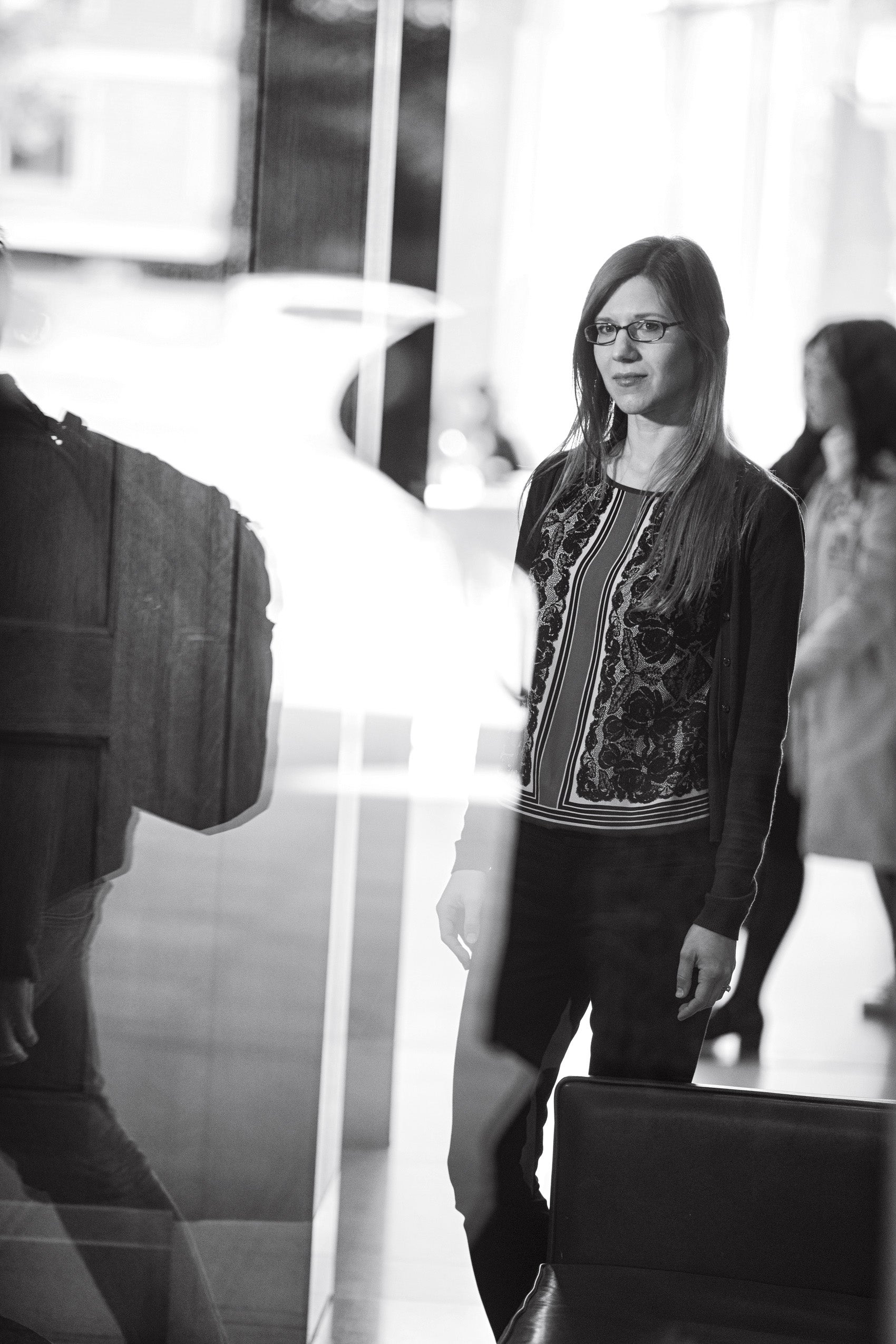Assistant Professor Anna Lvovsky ’13, who joined the HLS faculty in 2017, always planned to teach. A legal historian—she holds a Ph.D. from Harvard—with a focus on the administration of criminal justice, she teaches a seminar on the history of policing in the U.S. as well as courses on evidence and criminal law that invite students to focus on the systemic effects of seemingly neutral legal rules.
In her research, Lvovsky has explored the history of law enforcement against gay communities in the United States. Her forthcoming book, “Queer Expertise: Urban Policing and the Discovery of the Gay World, 1920-1970,” includes a history of the enforcement of liquor codes against gay bars, the use of undercover decoys to entice solicitations and the clandestine surveillance of public spaces to enforce felony statutes. The book traces the political struggles inspired by the vice squads’ campaigns among the different arms of the criminal justice system, as well as how shifting public understandings of gay men shaped the police’s enforcement operations.
Lvovsky is interested in how courts came to give police “a great deal of leeway” in enforcing criminal law.
In that sense, the book is part of a broader series of projects examining the role of expertise—especially police expertise—within the criminal justice system. In her previous work, Lvovsky examined how and why courts began deferring to police officers as experts in the mid-20th century, beginning with their role as expert witnesses at trial and expanding to Fourth Amendment suppression hearings and cases disputing the constitutionality of criminal statutes.
“I’m interested in how judges developed their understanding of police knowledge,” says Lvovsky. Her work traces that story to the police reform movements of the 1950s and 1960s, which expanded police training programs and lobbied for the recognition of officers as professionals, both inside and outside the courts. Her work also examines how judges’ interactions with police officers in a variety of contexts—including at trainings and conferences, criminal trials, and suppression hearings—collectively shaped their impressions of police knowledge.
“Those different points of encounter created a variety of inadvertent pressures toward deference,” Lvovsky says, ultimately leading the courts to give officers “a great deal of leeway” in enforcing the criminal law. “Part of my focus is the extent to which judges’ presumption of police expertise has expanded police power on the ground. More than just bolstering individual arrests, it’s led courts to uphold criminal statutes that would otherwise have been invalidated.”
To the extent that we see growing concerns today about judicial deference to the police, it’s important to recognize how that deference arose and how deeply embedded it is in the system, she says: “The reason judges began deferring to police expertise is not simply because they felt political pressure to support law enforcement. It was also because of a range of perhaps underrecognized institutional pressures that put judges into the habit of seeing the police as experts.”
In a future book, Lvovsky plans to examine the inverse side of police expertise: contexts where law enforcement agents downplay their professional insights in court. In the 1960s, she notes, investigators who enforced liquor laws and anti-solicitation statutes often developed a fluency in the codes of gay culture. But in court, they often denied their knowledge of gay norms in order to counter defense attorneys’ claims that they had enticed defendants into criminal behavior. “My next interest,” she says, “is to see where that dynamic occurs today.”
Advising the next generation: Anna Lvovsky met with students as part of Notes & Comment at the Harvard Law School Library. During the sessions students get advice from faculty on developing their own scholarship. Lvovsky’s first book, “Queer Expertise: Urban Policing and the Discovery of the Gay World, 1920-1970,” is forthcoming from the University of Chicago Press.
Read more about HLS faculty who are making the case for criminal justice reform »
